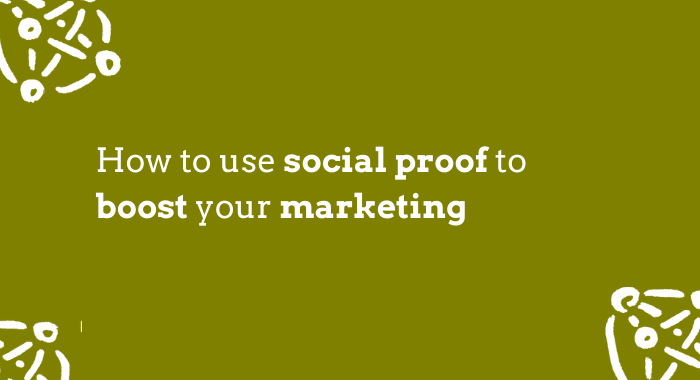How to use social proof to boost your tourism marketing

A simple example: would you rather buy fish and chips from the shop with or without a queue outside? Rather than think the queue implies very slow service, we readily believe that a queue means excellent fish and chips.
You don’t need a queue outside your business to use social proof to encourage people to visit you.
Social proof can come from different sources:
- Your visitors e.g. through reviews
- Celebrities and influencers
- Friends and friends of friends e.g. on facebook
- ‘Experts’ such as travel journalists
- Certifications such as though Quality in Tourism or well-respected industry awards
Social proof is used in many different ways.
Have you noticed that on some online booking sites, they display phrases such as “3 people looking at this accommodation”? This makes you think you’re making a good choice and urges you into action. There's some controversy over how they do this.
You don’t have to go to quite this extent, but you might want to sometimes say that x% of your rooms are full on certain dates.
The most obvious way to use social proof is to display some testimonials from satisfied customers. If I show you things like:
"Hi Susan, this is very exciting! I LOVE the concept and your ideas"
or
Dear Susan,
Just have to say this is a brilliant course which cuts straight to the crux of the matter and has helped me focus. I have been flailing around for too long wasting energy shouting into the void. I have wasted money doing the wrong thing and now I feel back on track! Many thanks indeed.
you may think 'others think what Susan (that's me!) offers is good, so maybe it will be useful to me too'. If you know where those testimonials come from, and that they're from people running a similar business to you, you'll be even more convinced.
Social proof is always stronger if it's from people we think have similar needs and values to us. If a parent is looking for a place to take their young children, they're more likely to respond to a review from someone who mentions their own young children.
Mentions in the media are seen as important endorsements, so it’s worth investing in PR activities. Articles and features about your business stay online for a long time, and also enhance your search engine rankings.
If you’ve won any awards, are members of any important (and credible) trade associations or any external certifications, make sure you display them on your website. Just remember to remove any with dates that are more than a couple of years old or they'll look dated and you'll lose credibility.
One reason why visitors may leave your site without making a decision to visit or make a booking is because they want (without always expressing it in this way) more social proof. This is when they may go to review sites such as TripAdvisor, in search of additional information and reviews. You can’t stop them from doing this, but you can avoid some of it, by adding reviews to your own website and social media. Photos of people enjoying themselves (published with permission) are also convincing.
Some people find it hard to make decisions and need to encouraged into booking or visiting. One way of doing this is to make it easier for them to make a decision by providing social proof. So for example, you may have three rooms. Labelling them with captions can help generate bookings e.g. ‘families love this room’, ‘couples enjoy relaxing in this romantic setting’ etc.
Ideally your visitors will recommend you to others, providing the most valuable kind of social proof possible. How can you encourage them to do it more?


0 comments
Leave a comment